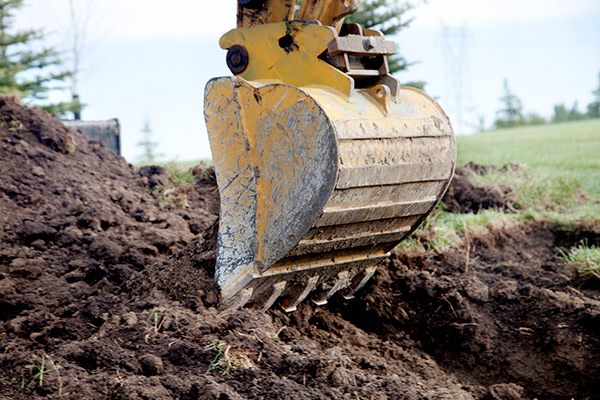Lancaster Excavation - Specialist Excavation Services in Lancaster, OH
Lancaster Excavation - Specialist Excavation Services in Lancaster, OH
Blog Article
Comprehensive Excavation Approaches: Grasping the Fundamentals for Success
In the world of construction and civil design, the importance of efficient excavation approaches can not be overemphasized. The careful preparation, precise execution, and careful focus to information needed in excavation projects require an extensive strategy that incorporates different basic aspects. From initial soil analysis to the application of security actions and regular progress monitoring, mastering these core elements is important for attaining success in any type of excavation endeavor. The real proficiency lies not merely in understanding these fundamentals but in seamlessly incorporating them to browse the intricacies of excavation jobs with skill.
Comprehending Excavation Project Preparation

The first stage of any type of excavation task is the preparation phase, where essential decisions are made that can substantially influence the end result of the task. Understanding the task budget plan, timeline, and extent constraints is important for producing an extensive excavation plan that makes sure the task's success.
One trick facet of excavation job preparation is the advancement of a comprehensive timeline that outlines the series of landmarks, activities, and deadlines. This timeline functions as a roadmap for the project group, permitting them to track progression and make needed modifications to guarantee the project remains on routine. Additionally, a well-defined spending plan that accounts for all expenditures, consisting of equipment service, labor prices, and products, is crucial for preventing cost overruns and hold-ups. By very carefully considering all these variables during the drawing board, excavation tasks can be implemented efficiently and properly, resulting in effective results.
Soil Evaluation and Website Analysis
Conducting comprehensive dirt analysis and site examination is a crucial action in the prep work stage of any excavation job. Dirt evaluation entails determining the structure, framework, and residential properties of the soil at the excavation site. This info is critical for understanding the soil's bearing capability, dampness material, and possibility for disintegration, which are key aspects in determining the excavation techniques and tools needed for the job.
Website evaluation surpasses soil evaluation and includes a wider evaluation of the general site conditions. This evaluation includes identifying any possible threats, such as below ground energies, environmental issues, or unstable surface, that can affect the excavation procedure. By extensively examining the website, job managers can develop effective excavation strategies that focus on security, effectiveness, and ecological security.
Making use of innovative modern technologies like ground-penetrating radar, dirt tasting, and drone studies can boost the precision and efficiency of dirt analysis and website evaluation. Investing time and sources in these initial steps can ultimately save time and prevent pricey hold-ups or complications during the excavation procedure.
Devices Choice and Usage
Efficient excavation projects count greatly on critical tools option and application to make certain ideal efficiency and efficiency. Choosing the right equipment for the job is important in taking full advantage of effectiveness and reducing downtime. Elements such as the sort of dirt, depth of excavation, and project scope play a significant duty in figuring out the most ideal devices for the task handy.

Along with picking the ideal tools, correct application is crucial to task success. Operators needs to be dump truck companies in ohio trained to deal with the devices safely and efficiently - lancaster trenching. Regular maintenance checks and prompt repairs aid protect against failures and make certain regular efficiency throughout the job
Safety Measures and Regulations Conformity
In the world of excavation jobs, prioritizing precaution and compliance with policies is critical to making sure a safe and lawfully audio operational atmosphere. Precaution include a range of methods, including performing detailed website evaluations, applying correct signage and barriers, and offering appropriate safety and security training for all workers associated with the excavation procedure. Adherence to laws, such as OSHA requirements in the USA, guarantees that the excavation job meets the needed standards to secure workers, onlookers, and the surrounding setting.

Surveillance Development and Adjusting Methods
Exactly how can project supervisors successfully track the development of excavation jobs and adapt their methods accordingly to enhance outcomes? Tracking progress is essential for ensuring that excavation tasks stay on track and meet deadlines.

Final Thought
In final thought, understanding the fundamentals of thorough excavation approaches is essential for the success of any type of task. By understanding task preparation, evaluating dirt and website conditions, picking proper equipment, adhering to safety policies, and keeping an eye on development, job supervisors can guarantee a smooth and reliable excavation procedure. Carrying out these methods will result in effective outcomes and lessen potential dangers or troubles during the excavation job.
The first phase of any type of excavation job is the preparation phase, where important decisions are made that can dramatically impact the result of the job. Comprehending the project extent, timeline, and spending plan constraints is vital for developing a comprehensive excavation plan that makes sure the task's success.
Just how can predict supervisors effectively track the development of excavation jobs and adapt their methods as necessary to enhance end results? By very closely monitoring progress and being willing to adapt techniques, job managers can improve the general success of excavation jobs.
By comprehending job planning, evaluating soil and site conditions, picking suitable tools, conforming with security policies, and keeping track of progression, job supervisors can guarantee a smooth and reliable excavation procedure.
Report this page